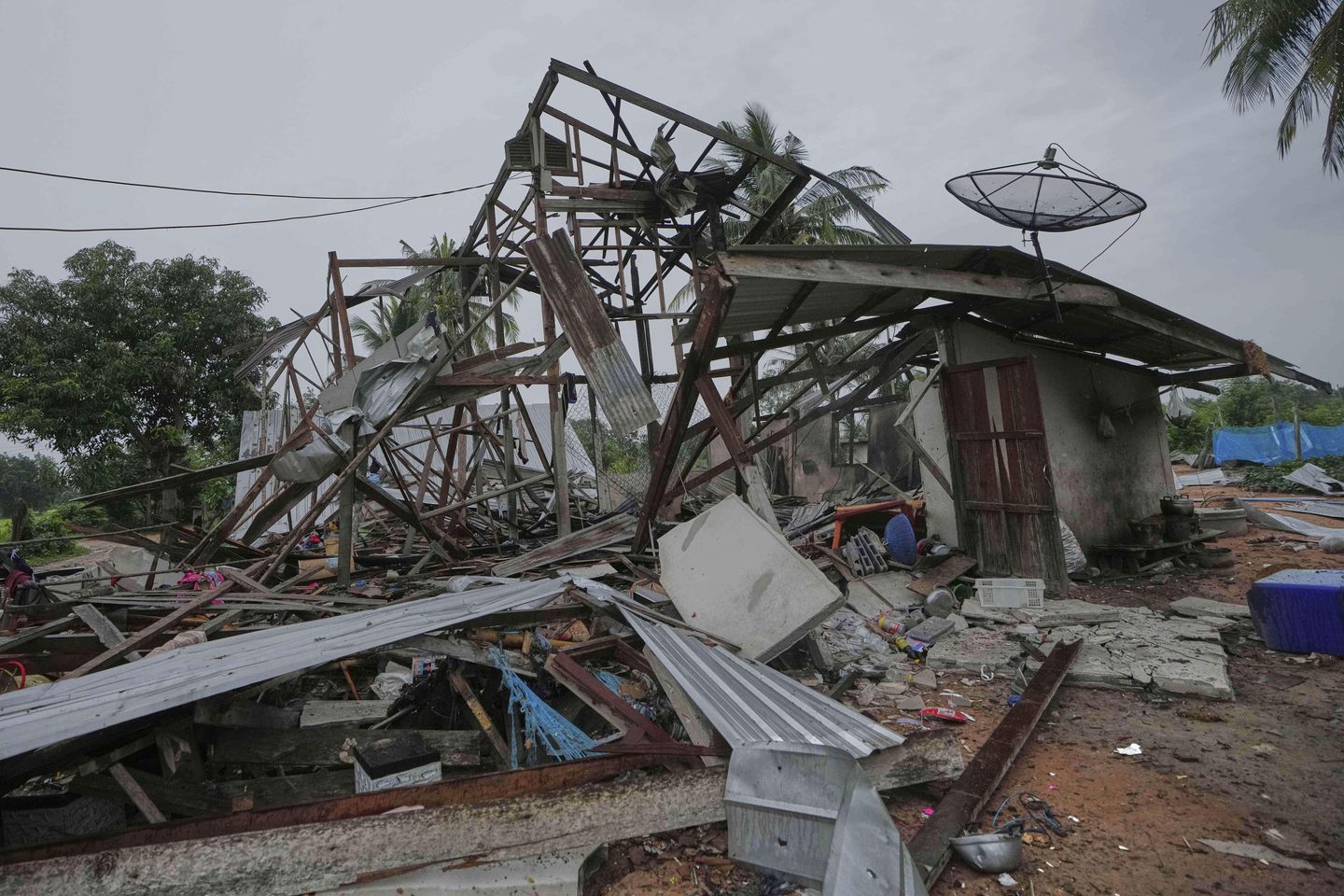
BANGKOK — Thai and Cambodian leaders will meet in Malaysia for talks to end hostilities, a spokesperson for the Thai prime minister’s office said on Sunday. This comes following pressure from U.S. President Trump to end a deadly border dispute, now in its fourth day, which has killed at least 34 people and displaced more than 168,000.
Jirayu Huangsap said Acting Prime Minister Phumtham Wechayachai will attend Monday’s talks in response to an invitation from Malaysian Prime Minister Anwar Ibrahim “to discuss peace efforts in the region.”
The spokesperson also said Mr. Phumtham’s Cambodian counterpart Hun Manet will also attend the talks, though this was not immediately confirmed by the Cambodian side. He added that Mr. Anwar was acting in his capacity as chair of the Association of Southeast Asian Nations, or ASEAN, held on an annual rotating basis by its 10 members.
Mr. Trump posted on Truth Social on Saturday that he spoke to the leaders of Thailand and Cambodia and suggested he would not move forward with trade agreements with either country if the hostilities continued. He later said both sides agreed to meet to negotiate a ceasefire.
Cambodian Prime Minister Hun Manet said earlier Sunday his country agreed to pursue an “immediate and unconditional ceasefire.” He said Mr. Trump told him that Thailand had also agreed to halt attacks following the U.S. president’s conversation with Mr. Phumtham.
He said he tasked his deputy, Foreign Minister Prak Sokhonn, to coordinate next steps with U.S. Secretary of State Marco Rubio and to engage directly with Thailand’s foreign minister to implement the ceasefire.
Thailand expressed cautious support. Mr. Phumtham thanked Mr. Trump and said that Thailand agreed in principle to a ceasefire but stressed the need for “sincere intention” from Cambodia, the Thai Foreign Ministry said. Mr. Phumtham called for swift bilateral talks to discuss concrete steps toward a peaceful resolution, it said.
The fighting flared Thursday after a land mine explosion along the border wounded five Thai soldiers. Both sides blamed each other for starting the clashes. Both countries recalled their ambassadors and Thailand closed its border crossings with Cambodia.
Despite the diplomatic efforts, fighting continued Sunday along parts of the contested border, with both sides refusing to budge and trading blame over renewed shelling and troop movements.
Col. Richa Suksowanont, a Thai army deputy spokesperson, said Cambodian forces fired heavy artillery into Surin province, including at civilian homes, early Sunday. He said Cambodia also launched rocket attacks targeting the ancient Ta Muen Thom temple, claimed by both countries, and other areas in a bid to reclaim territory secured by Thai troops. Thai forces responded with long-range artillery to strike Cambodian artillery and rocket launchers.
Col. Richa said Mr. Trump’s efforts to mediate were a “separate matter.” The battlefield operations will continue and a ceasefire can only happen if Cambodia formally initiates negotiations, he added.
“Any cessation of hostilities cannot be reached while Cambodia is severely lacking in good faith and repeatedly violating the basic principles of human rights and humanitarian law,” Thailand’s Foreign Ministry said separately.
Cambodian Defense Ministry spokesperson Lt. Gen. Maly Socheata accused Thai forces of escalating the violence with bombardment of Cambodian territory early Sunday, followed by a “large-scale incursion” involving tanks and ground troops in multiple areas.
“Such actions undermine all efforts toward peaceful resolution and expose Thailand’s clear intent to escalate rather than de-escalate the conflict,” she said.
Thailand on Sunday reported a new death of a soldier, bringing the total number of fatalities to 21, mostly civilians. Cambodia said 13 people have been killed. More than 131,000 people in Thailand have evacuated to safe locations and over 37,000 people fled from three Cambodian provinces. Many border villages are mostly deserted, with many schools and hospitals shut.
The U.N. Security Council called on ASEAN to mediate peace between the two members. Human Rights Watch has condemned the reported use of cluster munitions, weapons banned by International law, in populated areas, and urged both governments to protect civilians.
The 500-mile frontier between Thailand and Cambodia has been disputed for decades, but past confrontations have been limited and brief. The latest tensions erupted in May when a Cambodian soldier was killed in a confrontation that created a diplomatic rift and roiled Thailand’s domestic politics.










